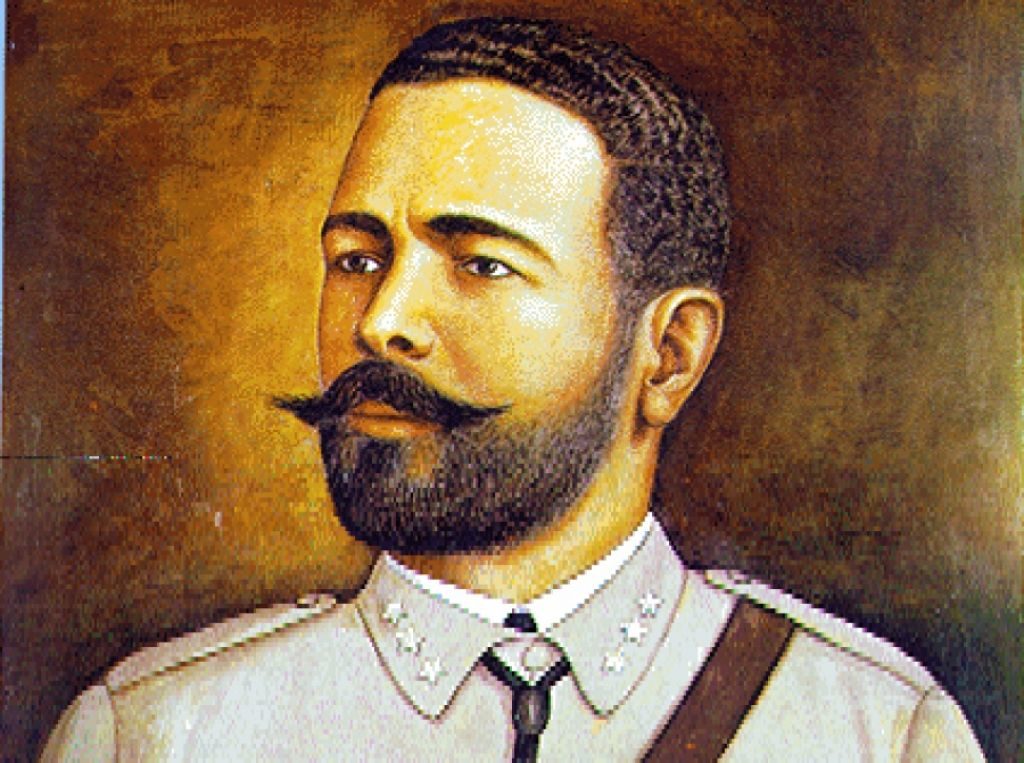
On January 22, 1896, Antonio Maceo, at the head of the Cuban forces fighting for independence, reached Mantua, Pinar del Rio, successfully completing the invasion of the Western provinces. It was an extraordinary strategic victory. The war was now to be fought in the fields of Cuba’s most profitable sugar region.
The invasion, that began in Oriente at the historical “Mangos de Baragua” on October 22, 1895, took three months to reach the westernmost town. On November 29, 1895, Antonio Maceo and Maximo Gomez had joined their forces in Las Villas with about 2,600 men, mostly cavalry. At this time, Spain had deployed over 140,000 soldiers in Cuba.
In early December, Arsenio Martinez Campos, the Spanish captain general, began a tactical move to encircle and destroy the invasion forces. Several Spanish regiments approached the Cubans from various routes.
Concerned with their situation, Gomez and Maceo searched for a way out while engaged in a bloody rear-guard fight. On December 15, they found it, in the plains of Mal Tiempo near Cienfuegos. The 600-man Spanish force of Col. Narciso Rich, spotting the approaching rebels, began organizing for the battle. Riding at the head of the column, Maceo spotted the enemy force and quickly realized the need to attack before they could complete their deployment. He ordered his bugleman to sound a cavalry charge. The whole column sprang into action wielding machetes and rushed forward in a head-on-calvary charge.
When Gomez heard the bugles, he raced forward. The fight was brief but fierce. The Spaniards held on, but the horsemen pressed on with the attack and broke the Spaniards’ ranks. One eyewitness wrote: “In honor of the Spanish Army, I must declare that neither before nor after during the war I saw their soldiers lose their morale and break ranks.” The battle of Mal Tiempo was a decisive turn. The rebel forces had broken through and were now at the gates of Cuba’s sugar emporium. Suddenly and unexpectedly, the Spanish colonial system was shaken to its very foundation.
By the end of 1895 Gomez and Maceo conceived the most brilliant maneuver of the invasion, known as “the false retreat.” The plan consisted in turning back to the east, to deceive the Spanish generals into thinking that the Cubans were retreating to Oriente. The move was a success, as Martinez Campos ordered most of his troops guarding the narrow plains between Havana and Matanzas to swiftly march to Las Villas and defeat the invasion forces before reaching their strongholds in Oriente.
But Gomez and Maceo turned direction again, moving west and entering Havana province where between January 2 and 7, 1896, their forces occupied a string of 11 towns, including Güira de Melena, almost without resistance. When the Cubans came as close as 12 miles from the capital, the colonial authorities panicked and issued orders to barricade Havana, out of fear of an imminent attack.
On January 7, Maceo and Gomez divided their forces at Hoyo Colorado on the border between Havana and Pinar del Rio provinces. Maceo took 1,560 men to Pinar del Rio, while Gomez stayed in Havana with a little more than 2,000.
News of the worsening situation was reaching Spain, and some newspapers were demanding Martinez Campos’ recall. El Heraldo de Madrid editorialized: “What is happening is truly inconceivable. It is incomprehensible how experienced generals….can be fooled in the way they are being fooled. It is beyond amazement… it is stupefying. This situation cannot be tolerated.”
The impact of the invasion was fully realized throughout Europe and the Americas. In Germany, the largest beet sugar producer in the world, the press reported: “Having devastated Matanzas, the rebels entered Havana and Pinar del Rio.. wherever they came, the harvest was burned in the fields, laborers who continued to work were fired upon, the railroads were destroyed, and telegraphic communication interrupted. Only a very small portion of the harvest of sugar cane can be saved. Of the 361 centrales (sugar mills) in Cuba, only 32 are working now. The rest have been forced to shut down, partly because the harvest is destroyed, partly for fear of attacks.”
The Review of Reviews stated: “The Cuban insurgents, whose field of actions until recently had been confined to the eastern and central provinces have obtained under the remarkable leadership of Generals Gomez and Maceo, a great victory bringing the war into the province of Havana.. and the revolution has gained much new headway.”
The Diario de la Marina, recognized the seriousness of the Cuban invasion success. It wrote: “they have not only reached the west but, in doing so, have devastated the entire territory that is Cuba’s granary.” How could it have happened? “…the advancement of the rebel forces, is a motive for amazement.”
Spanish historian Fernando Gomez wrote: “..the invasion of the West extended the war throughout the island as if it were a huge trail of burning powder that is having a devastated effect upon the economy of Cuba. It completely wrecked the island sugar economy. The sugar harvest dropped from over 1 million tons in 1895 to only 225,000 tons in 1896.”
The successful invasion that reached Mantua on January 22, 1896 was a huge strategic victory… The political impact was so severe that placed the fragile stability of the Spanish monarchy in jeopardy and left in ruins the island economy.
The London magazine The Economist reported: “Spain was forced to go to the European market for the first time since the beginning of the war to obtain funds to finance it.”
Finally, the success of the invasion meant the defeat of Spain’s most respected general, Arsenio Martinez Campos. His last report to Madrid said: “I have failed. The responsibility is mine.” General Valeriano Weyler was to replace the vanquished but honorable military.








